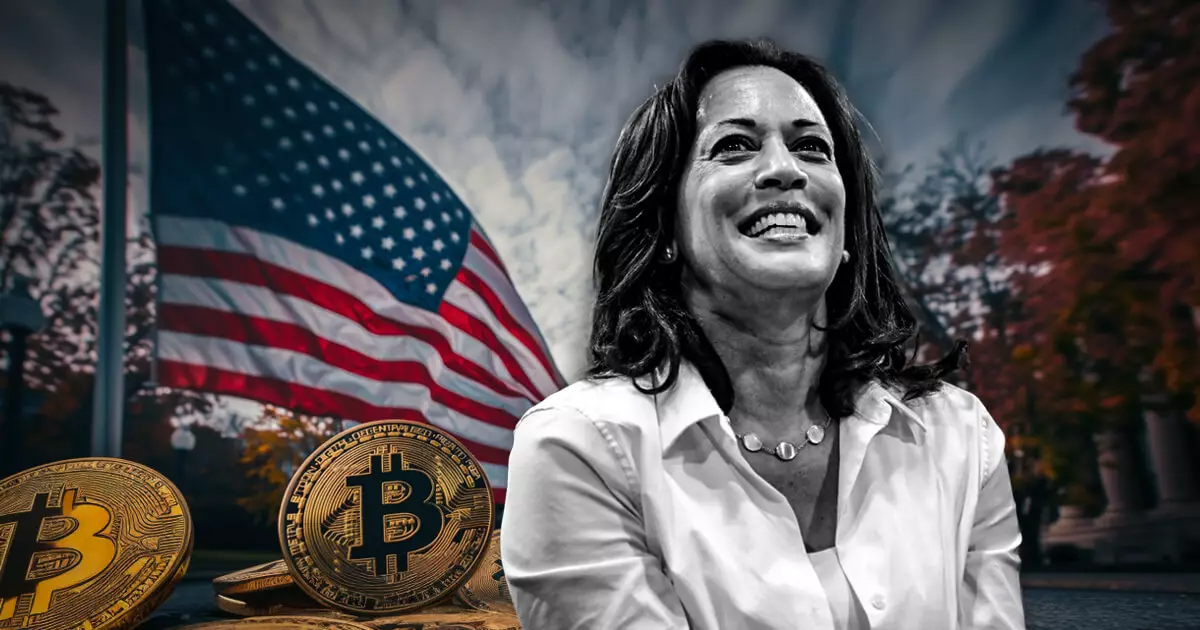The ongoing evolution of the cryptocurrency industry has garnered significant attention, especially as the 2024 U.S. presidential election approaches. Analysts are increasingly assessing how potential leaders could shape the regulatory landscape for digital assets. One such exploration comes from Alex Thorn, the head of research at Galaxy Digital, who has meticulously crafted a ‘policy scorecard’ reflecting the candidates’ stances on cryptocurrencies. This analysis provides critical insights into the potential implications of a Harris or Trump presidency on the crypto industry, showcasing the varying degrees of regulatory risk and support.
Thorn’s scorecard reveals that Vice President Kamala Harris, if victorious, could present a more favorable outlook for the cryptocurrency industry than the outgoing administration under President Joe Biden. Her governance, while posing some challenges, is seen as having less downside risk compared to Biden’s current policies. In stark contrast, former President Donald Trump emerges as a champion for crypto, displaying a stance that could significantly uplift the industry through clearer regulations.
While both candidates exhibit varying degrees of support, the scorecard highlights key discrepancies across four pivotal issues: tax policy, Bitcoin mining, self-custody rights, and banking regulations. These distinctions not only reflect their individual ideologies but also the overarching sentiment towards innovation in the financial sector.
The taxation policies each candidate advocates are perhaps one of the most contentious aspects of their platforms. Thorn labels Harris’ approach as “extremely hostile,” particularly her commitment to reversing Trump’s tax cuts for wealthy Americans. This pledge raises considerable concerns for the crypto sector, which thrives on clarity and favorable tax frameworks. Conversely, Trump is anticipated to offer much-needed clarity on digital asset taxation, fostering an environment potentially more conducive for crypto investments and development.
This polarizing stance on taxation highlights a vital aspect of how each candidate perceives the role of regulation in cryptocurrency. Trump’s promise to simplify and clarify the tax structure stands out in stark relief to Harris’ aggressive posturing against wealth accumulation through investments like cryptocurrency.
Bitcoin mining, a prominent issue within the cryptocurrency community, underscores an essential contrast between the two candidates. Biden’s proposed mining tax of 30% has created unease among miners, while Harris’s campaign rhetoric appears mildly less hostile, prompting some optimism among industry advocates. Nonetheless, both candidates still trail behind Trump, who has publicly allied himself with miners, viewing the activity through a lens of national manufacturing. Such support signals not only a commitment to fostering the crypto economy but also an understanding of the technological advancements associated with mining activities.
This enthusiastic backing for Bitcoin mining could pave the way for increased investment and research in the sector, should Trump regain the presidency. Conversely, Harris’s more cautious stance implies ambiguity for miners, especially should her regulatory approach continue to evolve.
Banking access represents another critical battleground in the cryptocurrency regulatory landscape. Harris’s potential interpretations of Biden’s “Operation Chokepoint 2.0” could signal a turning point for banking access for crypto firms. Anecdotal evidence suggests she may lean towards a more lenient banking framework to accommodate the crypto sector’s unique needs. On the other hand, Trump’s robust support promises to dismantle restrictive measures entirely, endorsing the integration of crypto within traditional banking systems. This divergence highlights broader ideological differences regarding how the government should interact with emerging technologies.
Despite Bitcoin’s central role in the crypto discussion, the scorecard notes that its regulatory future largely remains unaffected by whether a Trump or Harris administration takes the helm. The real contention lies within altcoins, where regulatory frameworks could either impede or enhance their performance. If Trump enacts substantial reforms, altcoins like Uniswap’s UNI could witness remarkable growth, overshadowing Bitcoin’s stable dominance.
As the 2024 election looms, Thorn’s analysis underscores the complexities surrounding crypto regulation under successive administrations. While the crypto industry might navigate through uncertain waters under Harris, Trump’s presidency could unleash a wave of innovation and market enthusiasm, setting a transformative precedent for the future of digital assets in the U.S. Each candidate embodies profoundly different philosophies toward regulation, raising crucial questions about the long-term trajectory of the cryptocurrency landscape.

